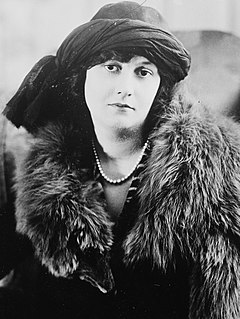A Quote by Salman Rushdie
What had been (at the beginning) no bigger than a full stop had expanded into a comma, a word, a sentence, a paragraph, a chapter; now it was bursting into more complex developments, becoming, one might say, a book - perhaps an encylopaedia - even a whole language.
Related Quotes
What is easy to read has been difficult to write. The labour of writing and rewriting, correcting and recorrecting, is the due exacted by every good book from its author, even if he knows from the beginning exactly what he wants to say. A limpid style is invariably the result of hard labour, and the easily flowing connection of sentence with sentence and paragraph with paragraph has always been won by the sweat of the brow.
The story of this man who had killed a messenger and hanged himself would make interesting reading. One could almost write a whole chapter on him. Perhaps not a whole chapter but a resonable paragraph, at any rate. There was so much else to include, and one must be firm in cutting out details. He had already chosen the title of the book, after much thought: `The Pacification of the Primitive Tribes of the Lower Niger.'
I've always been a fast reader. Now I had to do it slowly, discussing each sentence. And every time I wanted to change something I had to come up with an intelligent defense I could be pretty sure that they would turn my suggestion down, as they had so many aspects to keep in mind. However, if I argued well, I could have a chance. I had to think of every comma, every word.
Above all, mine is a love story. Unlike most love stories, this one involves chance, gravity, a dash of head trauma. It began with a coin toss. The coin came up tails. I was heads. Had it gone my way, there might not be a story at all. Just a chapter, or a sentence in a book whose greater theme had yet to be determined. Maybe this chapter would've had the faintest whisper of love about it. But maybe not. Sometimes, a girl needs to lose.
Rebecca was an academic star. Her new book was on the phenomenon of word casings, a term she'd invented for words that no longer had meaning outside quotation marks. English was full of these empty words--"friend" and "real" and "story" and "change"--words that had been shucked of their meanings and reduced to husks. Some, like "identity" and "search" and "cloud," had clearly been drained of life by their Web usage. With others, the reasons were more complex; how had "American" become an ironic term? How had "democracy" come to be used in an arch, mocking way?
Family was even a bigger word than I imagined, wide and without limitations, if you allowed it, defying easy definition. You had family that was supposed to be family and wasn't, family that wasn't family but was, halves becoming whole, wholes splitting into two; it was possible to lack whole, honest love and connection from family in lead roles, yet to be filled to abundance by the unexpected supporting players.
To understand oneself requires patience, tolerant awareness; the self is a book of many volumes which you cannot read in a day, but when once you begin to read, you must read every word, every sentence, every paragraph for in them are the intimations of the whole. The beginning of it is the ending of it. If you know how to read, supreme wisdom is to be found.
Well, start waving and yelling, because it is the so-called Oxford comma and it is a lot more dangerous than its exclusive, ivory-tower moniker might suggest. There are people who embrace the Oxford comma and people who don't, and I'll just say this: never get between these people when drink has been taken. Oh, the Oxford comma. Here, in case you don't know what it is yet, is the perennial example, as espoused by Harold Ross: "The flag is red, white, and blue." So what do you think of it? Are you for or against it? Do you hover in between?







































